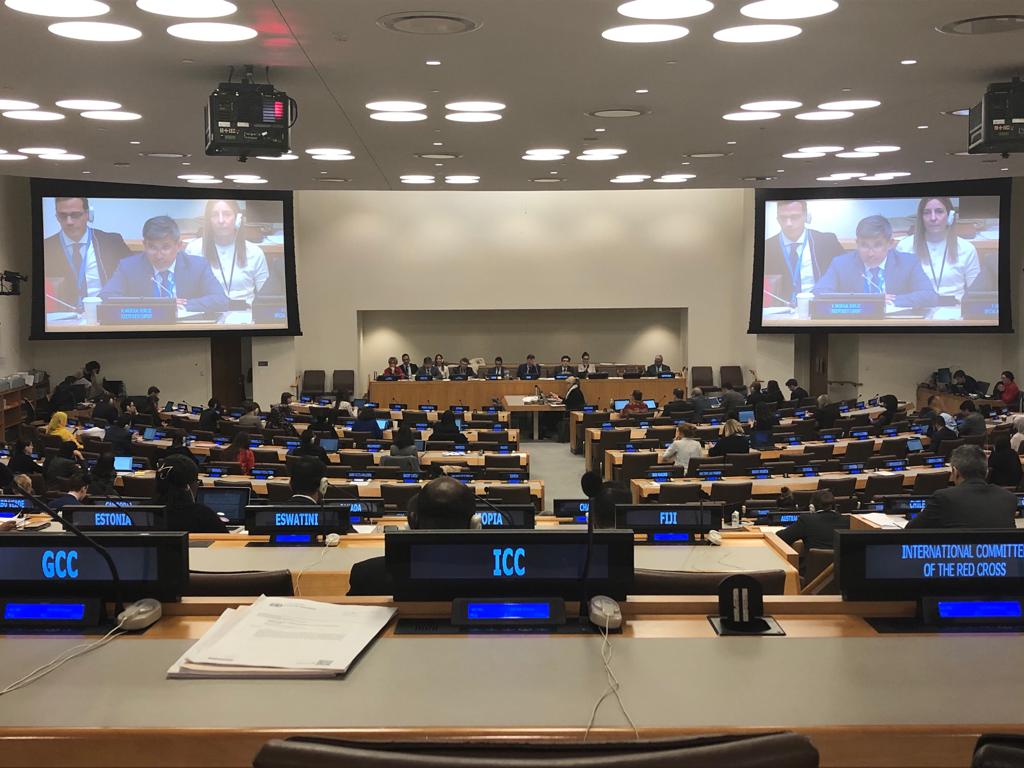UPDATE: No challenge in UN Third Committee on the renewal of Independent Expert on SOGI! Read more here.
On 24 October, the Independent Expert on violence and discrimination on the basis of sexual orientation and gender identity, Victor Madrigal-Borloz, presented his second report to the Third Committee of the General Assembly.
In this report, he exposes ways in which socio-cultural norms and discriminatory laws continue to marginalise and exclude lesbian, gay, bisexual and trans (LGBT) persons from various sectors including education, health care, housing, employment and occupation.
Madrigal discusses strategies and frameworks adopted across the globe and makes recommendations to promote the social inclusion of LGBT people.
Political Participation
The Independent Expert emphasises that public policy should enable good governance by ensuring effective participation of affected communities in decision making processes, design, implementation and monitoring; and promoting safe and enabling environments for civil society and human rights defenders, including ensuring appropriate funding.
He notes that the integration of LGBT persons is enhanced where there is meaningful consultation, and where the right to participate in the government and access to public services are protected. The establishment of an Advisory Council on LGBT Affairs in Malta and a public policy in Ecuador – both involving local LGBT civil society representatives in their development and implementation – are welcome good practices.
‘We echo the Independent Expert’s call to ensure political participation of affected communities. The Yogyakarta Principles and the Yogyakarta Principles plus 10 – which apply international human rights law to issues of sexual orientation and gender identity, gender expression and sex characteristics outline State obligations required for the protection of LGBTI rights defenders, one of which is the right to participate in public life. States should develop and implement affirmative action programmes to promote public and political participation for persons marginalised on the basis of their sexual orientation and gender identity,’ says ISHR’s Tess McEvoy
Partnerships
Madrigal stresses that in order to become fully inclusive of LGBT individuals, States cannot overlook the vital role of partnerships with civil society. He cites a number of partnerships in the fight against HIV/AIDS, where the contribution of civil society is clear in settings where the provision of health services is not yet fully covered by the State.
The expert highlights the extraordinary power coming from uniting under the objective to defend human rights and promote measures of inclusion. He referred to two good practices – in Argentina, the creation of the first LGBT Defender Office in Latin America by the Federation of Lesbians, Gays, Bisexuals and Trans and the Defensor del Pueblo (Ombudsman); and in New Zealand, the Professional Association for Transgender Health Aotearoa (PATHA).
Responses by States
In the interactive dialogue with States that followed, Bolivia delivered a statement on behalf of the UN LGBTI Core Group, expressing support for the mandate and the need for all stakeholders to increase their efforts to promote social inclusion.
We were thrilled to hear Angola ask about how countries can better take into account the concerns underlined by the Independent Expert, and how the Expert can work in countries where they do not yet have official databases in this field. Further, we welcomed the intervention by China that asked for best practices on efforts related to decriminalisation and depathologisation.
We hope that all governments cooperate with the Independent Expert – whose mandate was renewed this June, in this important work towards a world free from violence and discrimination for all people regardless of sexual orientation and gender identity.
‘Within the current challenging political and social climate, the presence of an expert who can foster dialogue and assist States towards more inclusive policies is fundamental’, added McEvoy. ‘Governments recognise this, as shown by the record-high number of States supported the renewal of the mandate at the Human Rights Council in July, and the fact that mandate was not challenged in the Third Committee in November.’
Contact: Tess McEvoy, [email protected].
Photo: ISHR




